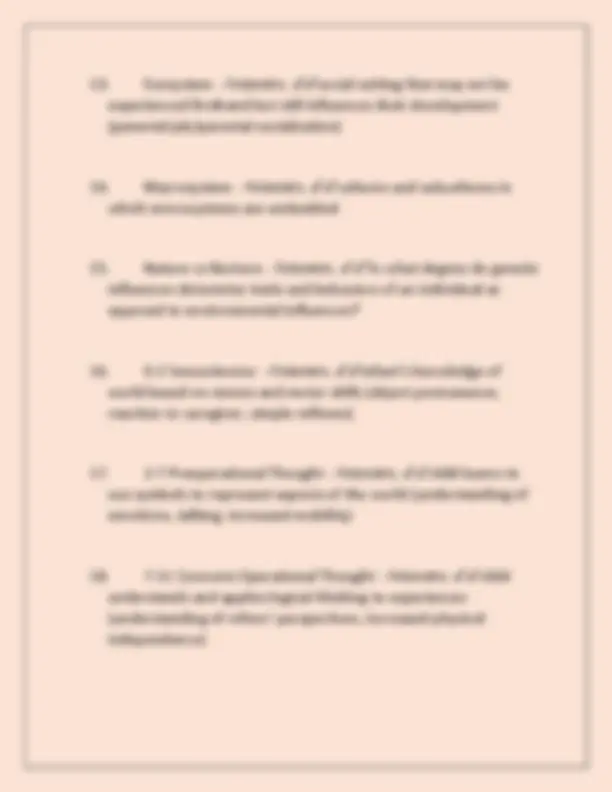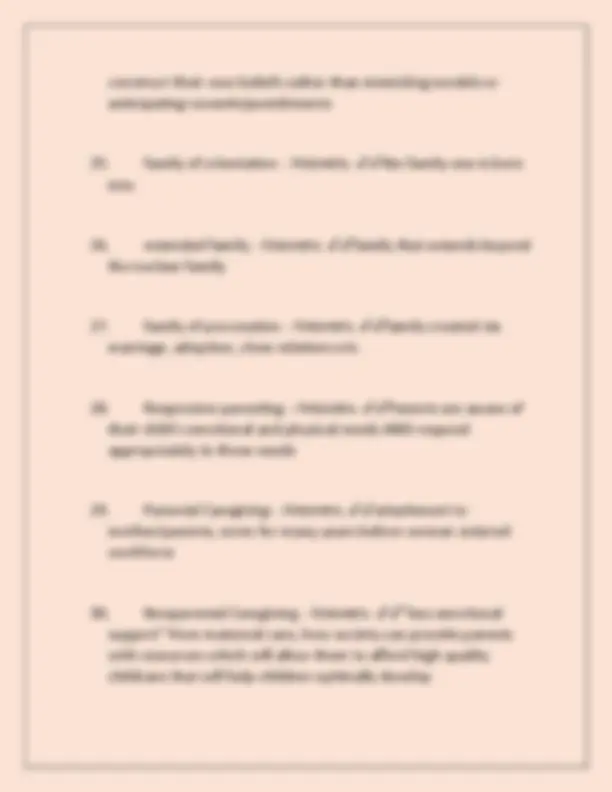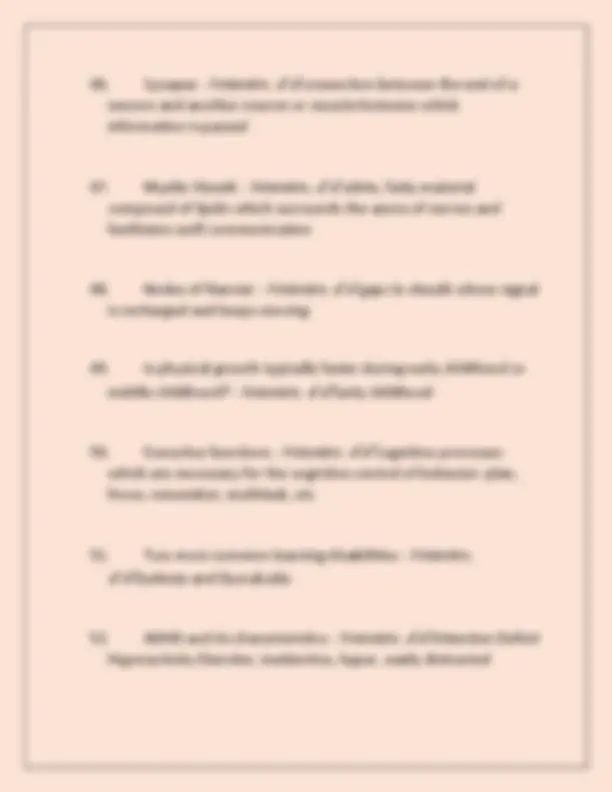








Study with the several resources on Docsity

Earn points by helping other students or get them with a premium plan


Prepare for your exams
Study with the several resources on Docsity

Earn points to download
Earn points by helping other students or get them with a premium plan
Community
Ask the community for help and clear up your study doubts
Discover the best universities in your country according to Docsity users
Free resources
Download our free guides on studying techniques, anxiety management strategies, and thesis advice from Docsity tutors
A comprehensive set of questions and answers covering key concepts in human development and family studies (hdfs). It explores various aspects of child development, including sampling techniques, research methodologies, theories of development, cognitive milestones, physical growth, learning disabilities, and family dynamics. The document also delves into the importance of parental caregiving, the impact of low birth weight, and the role of nutrition in child development. It serves as a valuable resource for students studying hdfs, offering insights into essential topics and providing a framework for understanding the complexities of human development.
Typology: Exams
1 / 11

This page cannot be seen from the preview
Don't miss anything!







application, does not benefit anyone directly, but can lead to development of other questions
construct their own beliefs rather than mimicking models or anticipating rewards/punishments